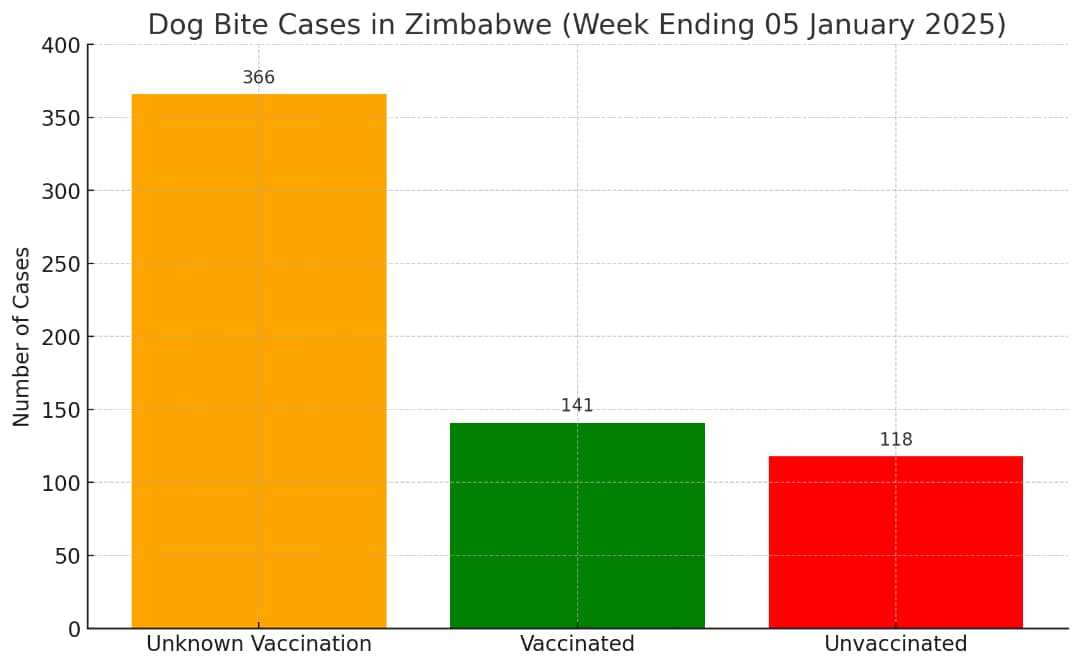
Rutendo Mazhindu
Zim Now Writer
The Weekly Disease Surveillance Report for the week ending January 5, 2025 has raised serious alarms as dog bite cases continue to rise, with no deaths recorded but an increasing trend that demands urgent attention.
The total number of reported dog bite cases for the week stands at 635, marking a significant number that reflects a worrying surge in animal-related injuries. Though no fatalities were recorded, the sheer volume of reported cases signals an emerging public health issue that calls for immediate intervention.
The majority of these incidents, 366 cases or 60%, involved dogs of unknown vaccination status, a factor that significantly raises the risk of transmission of diseases such as rabies. The uncertainty surrounding the vaccination status of these animals is alarming, especially when coupled with the fact that only 141 (22%) cases involved vaccinated dogs, and 118 (18%) were from unvaccinated dogs.
Related Stories
These numbers illustrate a pressing gap in vaccination coverage, which can be crucial in preventing the spread of deadly diseases from dogs to humans.
Masvingo and Mashonaland East provinces were the hardest hit, accounting for the highest number of dog bite cases. Masvingo reported 136 cases, while Mashonaland East had 112, indicating a possible regional hotspot for dog-related injuries.
This growing trend of dog bites in these provinces, as well as other areas of the country, poses serious risks not only to public health but also to the country’s broader efforts in controlling zoonotic diseases.
While the report does not indicate any fatalities this week, the increasing number of bites should be seen as a warning sign. The potential for a rabies outbreak or other zoonotic disease transmission could be averted only through increased vigilance, especially in the areas with the highest incidence of bites.




















Leave Comments